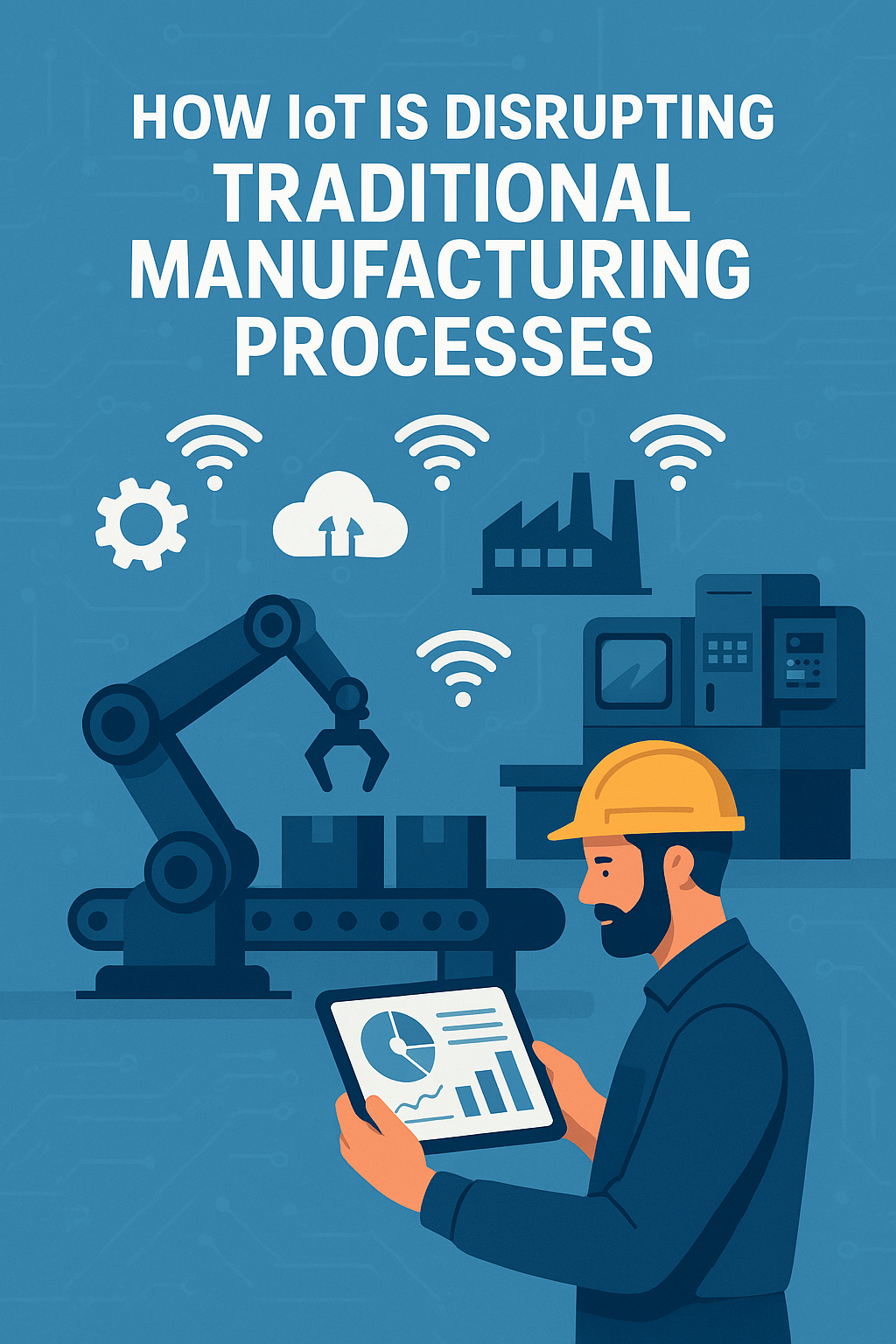
How IoT is Disrupting Traditional Manufacturing Processes
The Internet of Things (IoT) has taken the world by storm, transforming how industries operate across the globe. From smart home gadgets to industrial machinery, IoT is reshaping the very fabric of our daily lives and industries. In this article, we explore the impact of IoT on traditional manufacturing processes and how it's revolutionizing industries.
Understanding IoT and Its Impact on Manufacturing
The Internet of Things (IoT) refers to the network of physical devices connected to the internet, capable of exchanging data. In manufacturing, IoT facilitates real-time monitoring, automation, and predictive maintenance, creating smarter, more efficient production lines.
The Role of AI in Enhancing IoT's Power
Artificial Intelligence (AI) is the silent partner enhancing IoT's capabilities. Together, they enable manufacturers to predict issues before they occur, automate complex processes, and optimize supply chains. The latest innovations in AI are integrating seamlessly with IoT systems to make operations faster, smarter, and more sustainable.
Real-Life Applications of AI in Manufacturing
Imagine a factory where machines can diagnose their issues before they break down. AI combined with IoT sensors can predict when a part will fail and notify technicians for preventive maintenance. This reduces downtime and increases overall productivity, a game-changer for any manufacturing facility.
Smart Home Technologies Enter the Manufacturing Scene
While most people associate smart home gadgets with convenience at home, these technologies are now making their way into manufacturing. Smart devices that monitor air quality, lighting, and temperature are being adapted to enhance factory environments. The idea is simple: if it can work in a home, why not apply it to industry?
The Best Smart Home Gadgets That Could Revolutionize Manufacturing
Devices like smart thermostats, motion sensors, and energy-saving systems could optimize energy usage in manufacturing plants. IoT-enabled smart sensors also play a key role in improving safety and monitoring environmental conditions in real-time.
5G and Its Role in IoT-Driven Manufacturing
The arrival of 5G technology has been a game-changer for IoT in manufacturing. 5G offers faster connectivity, reduced latency, and the ability to connect more devices simultaneously. This opens up new possibilities for real-time data transfer and faster decision-making.
Top 5G-Enabled Devices You Need to Know About
From wearable devices for factory workers to high-speed sensors and automated drones, the top 5G-enabled devices are improving factory operations. These devices allow manufacturers to access and analyze data faster, leading to more efficient production lines and better quality control.
Sustainable Technology Innovations: Practical Uses in Manufacturing
As industries embrace IoT and other emerging technologies, sustainability is at the forefront. IoT solutions enable manufacturers to reduce waste, improve energy efficiency, and monitor environmental impacts in real time. Sustainable manufacturing isn't just a buzzword; it's becoming a practical reality, thanks to IoT and related technologies.
Practical Uses of Sustainable Technologies in Everyday Life
Think about energy-efficient smart appliances at home. Now, imagine factories that can monitor and reduce energy usage in real time, or smart systems that manage waste disposal automatically. These sustainable technologies help companies reduce costs while minimizing their environmental footprint.
How IoT is Revolutionizing Industries Beyond Manufacturing
While manufacturing is the primary industry benefiting from IoT, the impact extends to others like agriculture, healthcare, and logistics. IoT is transforming the way these industries function, offering improved efficiency, reduced costs, and enhanced services.
IoT in Agriculture: A New Era of Farming
Farmers now use IoT sensors to monitor soil moisture, temperature, and crop health. This real-time data helps them optimize irrigation systems, reducing water usage and maximizing crop yields. It's IoT's quiet revolution in the farming industry!
IoT in Healthcare: Improving Patient Care
In healthcare, IoT-enabled devices like wearables help doctors monitor patient vitals in real time, enabling quicker intervention when necessary. This tech is saving lives by making healthcare more proactive and responsive.
Challenges and Limitations of IoT in Manufacturing
Despite all its advantages, IoT adoption in manufacturing isn't without challenges. Security concerns, the high cost of implementation, and the complexity of integrating IoT with legacy systems can slow down its widespread adoption.
How to Overcome These Challenges
Investing in robust cybersecurity measures, working with IoT experts, and gradually transitioning legacy systems can help overcome these hurdles. The key is to start small and scale as the benefits of IoT become clear.
Conclusion: The Future of IoT in Manufacturing
The future of manufacturing is undeniably tied to IoT. With advancements in AI, smart home technologies, 5G, and sustainable practices, IoT is changing how industries operate. The revolution is just beginning, and manufacturers who embrace these technologies now will be ahead of the curve. The future is smart, connected, and sustainable—get ready to be part of it!
FAQs
1. What are some real-life applications of IoT in manufacturing?
IoT in manufacturing includes predictive maintenance, real-time data collection, automation of production lines, and inventory management. These applications help reduce costs and improve efficiency.
2. How does 5G impact IoT in manufacturing?
5G provides faster, more reliable connections, enabling real-time data exchange between devices, improving the speed and efficiency of manufacturing processes.
3. What are some sustainable technologies in IoT manufacturing?
Sustainable technologies in IoT manufacturing include energy-efficient sensors, waste reduction systems, and real-time monitoring of environmental conditions to minimize the carbon footprint.
4. Can IoT be used in industries other than manufacturing?
Yes! IoT is revolutionizing several industries, including agriculture, healthcare, logistics, and smart homes, by providing real-time data and automation capabilities.
5. What challenges do manufacturers face when adopting IoT?
Challenges include high implementation costs, security concerns, and the need to upgrade legacy systems. However, these can be mitigated with careful planning and investment in cybersecurity.